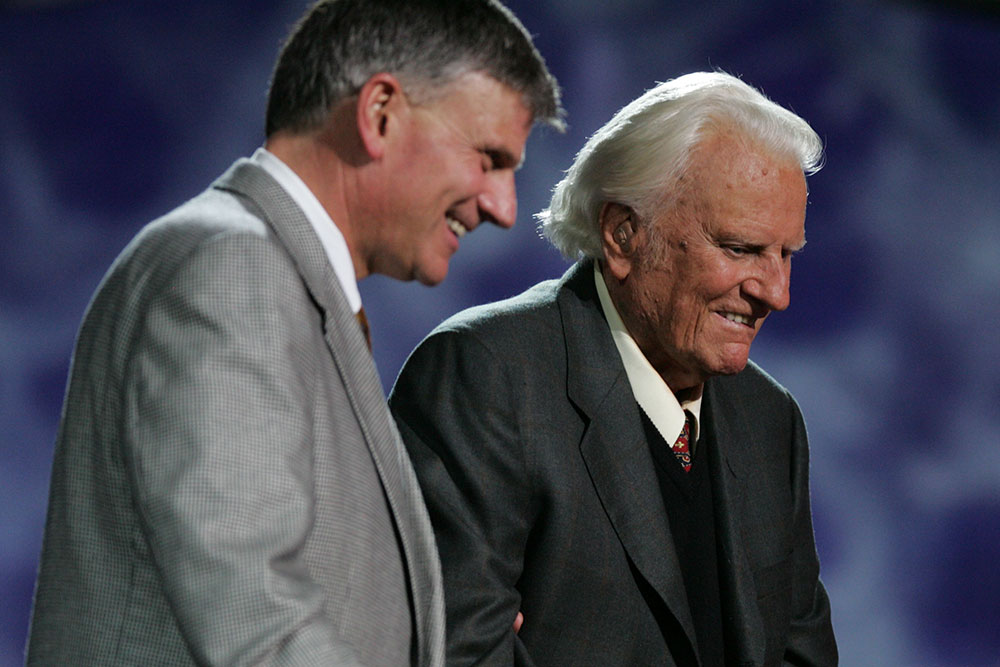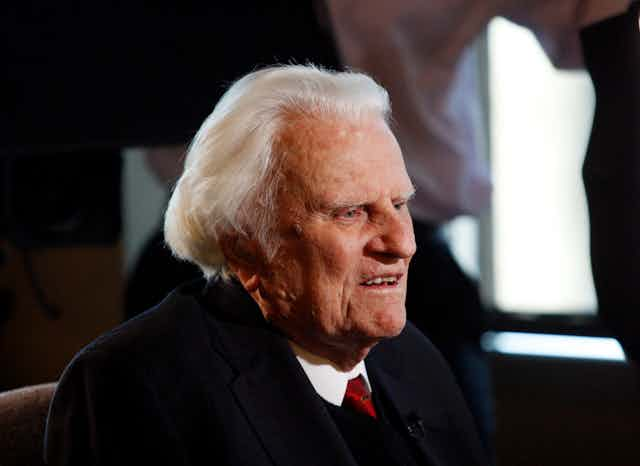Franklin Graham, son of the legendary evangelist Billy Graham, has led a life shaped by faith, personal struggles, and profound transformation. Born on July 14, 1952, in Asheville, North Carolina, Franklin was raised in a deeply religious household, where his parents instilled strong Christian values. Despite the spiritual richness of his upbringing, Franklin experienced a period of rebellion and personal turmoil during his youth, as he struggled to find his own identity and purpose in the shadow of his famous father. However, through a series of life-altering events, Franklin ultimately embraced his faith, and his journey from rebellion to redemption has inspired millions worldwide.

The Early Struggles: Rebellion and Identity Crisis
Growing up as the son of Billy Graham, one of the most influential Christian evangelists of the 20th century, came with immense pressure. The expectations placed on Franklin were high, and while his home was filled with spiritual guidance—prayers, Bible readings, and conversations about faith—he longed for freedom. His teenage years were marked by rebellion as he tested boundaries and rejected the values he had been taught.
Franklin’s desire to break free from his father’s legacy led to a period of inner conflict. Although he yearned to establish his own identity, he found himself grappling with the spiritual and emotional turmoil that came from rebelling against his upbringing. This period of adolescence, full of confusion and self-discovery, left Franklin feeling lost and dissatisfied. However, this dissatisfaction became the catalyst for a profound spiritual awakening.

In his early twenties, Franklin found himself at a crossroads. Faced with the emptiness of his rebellious lifestyle, he underwent a period of deep introspection. It was during this time that he experienced a spiritual transformation, recognizing the hollowness of his defiant actions and the deep yearning for a life of greater significance. In a pivotal moment, Franklin gave his life to Christ, marking the beginning of a profound change in his heart and mind.
This decision was not a fleeting emotional reaction but a lasting commitment that redefined Franklin’s goals and his sense of self. Embracing his faith fully, Franklin found purpose in his desire to share the gospel and help others. His renewed dedication to Christ and service to humanity became the cornerstone of his ministry and humanitarian efforts, setting him on a path to continue his father’s legacy while developing his unique calling.

One of the defining moments in Franklin’s life came in 1974 when he joined Samaritan’s Purse, a global humanitarian organization founded by Bob Pierce. The organization’s mission was to show the love of Jesus Christ through disaster relief, poverty alleviation, and medical aid. Franklin was deeply moved by the plight of marginalized people worldwide, and his firsthand experiences during disaster relief efforts fueled his passion for humanitarian service.
Under Franklin’s leadership, Samaritan’s Purse grew significantly, with the organization responding to international crises such as hurricanes, earthquakes, and tsunamis. Franklin’s approach to humanitarian aid was not just about providing material assistance but also about offering spiritual support to those suffering. His efforts were guided by the belief that faith and action should go hand in hand, helping both the body and the soul.
Franklin’s leadership at Samaritan’s Purse was marked by rapid and effective response to disasters. Whether it was providing food, water, shelter, or medical assistance, Samaritan’s Purse became a global leader in disaster relief. For example, after the devastating 2010 earthquake in Haiti, Franklin personally visited the affected areas, offering encouragement and overseeing the distribution of aid. His leadership and hands-on involvement in relief efforts made a lasting impact on the communities he served.

In addition to his humanitarian work, Franklin Graham has been an influential evangelist, carrying on his father’s mission of preaching the gospel to the masses. In 2000, he became the CEO and president of the Billy Graham Evangelistic Association (BGEA), expanding the scope of his father’s work while addressing the changing spiritual and social needs of contemporary society.
Franklin’s evangelical ministry has reached millions of people through massive festivals, television broadcasts, and online platforms. His preaching focuses on the core message of salvation through Jesus Christ and the importance of repentance. These events, often held in stadiums and outdoor venues, have provided a space for people to encounter the gospel in a meaningful way. Franklin’s style combines traditional evangelical preaching with modern techniques, making the gospel accessible to a diverse audience, i


Leave a Reply